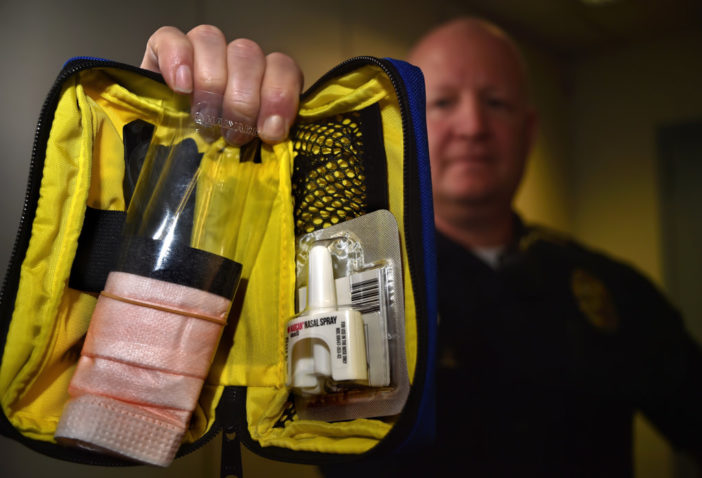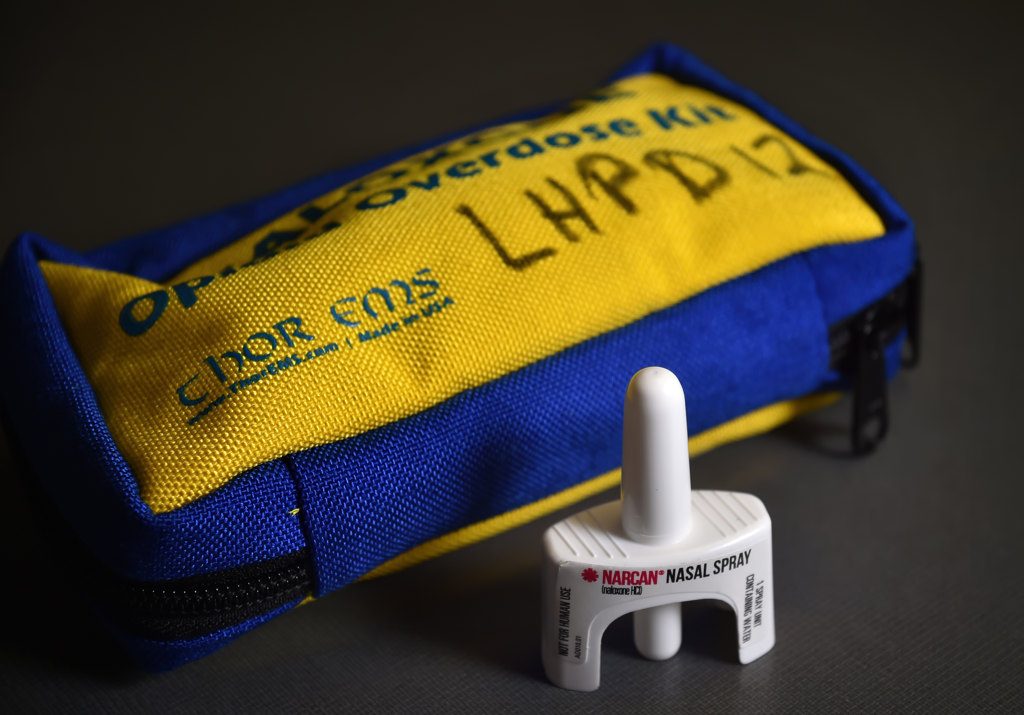The latest tool for La Habra PD officers comes in a smallish blue-and-yellow pouch.
Inside the pouch is a nasal spray that could mean the difference between life and death for someone in the throes of an opioid overdose, whose signs include deep snoring, shallow or slow breathing (less than eight breaths per minute), not breathing at all, pale and moist skin, and no response to verbal or touch stimulation.
Joining a growing number of O.C. law enforcement agencies in a program first launched locally by the Orange County Sheriff’s Department in October 2016, the La Habra PD this summer is training all its officers so they can safely administer Naloxone on calls where it is deemed appropriate and emergency medical personnel have yet to arrive.
Naloxone, which only works with opioids, blocks and reverses their effects. The medication, sold under brand names including Narcan, takes between one and three minutes to kick in, and lasts 30 to 90 minutes. It is not possible to overdose on it.
Opioids include heroin, methadone, morphine, opium, codeine, fentanyl, oxycodone and hydrocodone.
On a recent Friday evening, Sgt. Rob Diehl, who was one of two instructors tasked with educating agency personnel how to dispense Naloxone and familiarizing them with the LHPD’s policies and procedures regarding the medication, gave a Power Point demonstration.
“We’ve all seen (opioid overdoses), we know what we’re looking for, and this is a very simple tool for us to use,” Diehl told the officers assembled in the briefing room.
Afterward, each officer took a quiz to ensure he had been adequately trained.
An officer has no legal obligation to administer Naloxone, but those that do are protected from civil and criminal liability if they “act with reasonable care” and “in good faith.”
The concept of law enforcement personnel dispensing medication is not new on the East Coast, where many police officers and deputies are cross-trained as paramedics — and hence can dispense medication.
But the use of Narcan nasal spray now is spreading to the West Coast.
LHPD purchased 16 Naloxone kits (each $75 kit contains two doses, gloves and a mask) that are kept in a secured room at the station and checked out by patrol officers when they start their shift. This quantity insures that there are more than enough kits to cover the maximum eight to 10 LHPD officers who work each patrol shift.
The officers don’t keep the kits in their cars 24/7 because the medication is sensitive to extreme heat or cold.
Lt. Mel Ruiz, who oversees the LHPD’s Naloxone program, said the entire point is to save lives. Training for all officers who have contact with the public began in July and will wrap up in August.
As of Aug. 4, no LHPD officer had administered the nasal spray to a subject. But with opioid misuse seen as a growing epidemic across the country, Ruiz believes it may not be long before an LHPD officer has to do so.
La Habra PD asks that anyone who witnesses a person experiencing an overdose, immediately dial 911. California law provides protection from prosecution of drug possession for persons reporting drug-related overdoses.
 Behind the Badge
Behind the Badge




